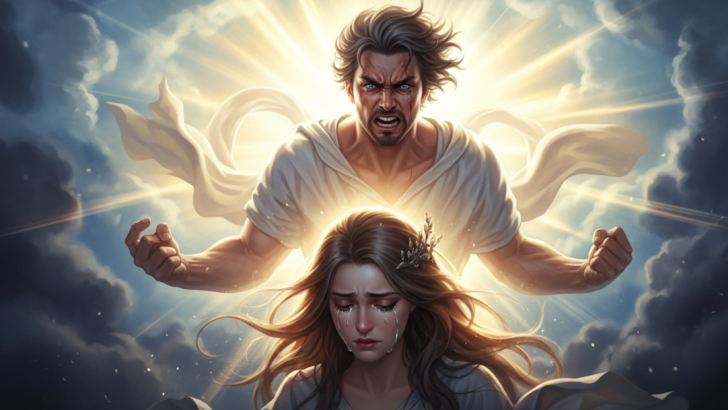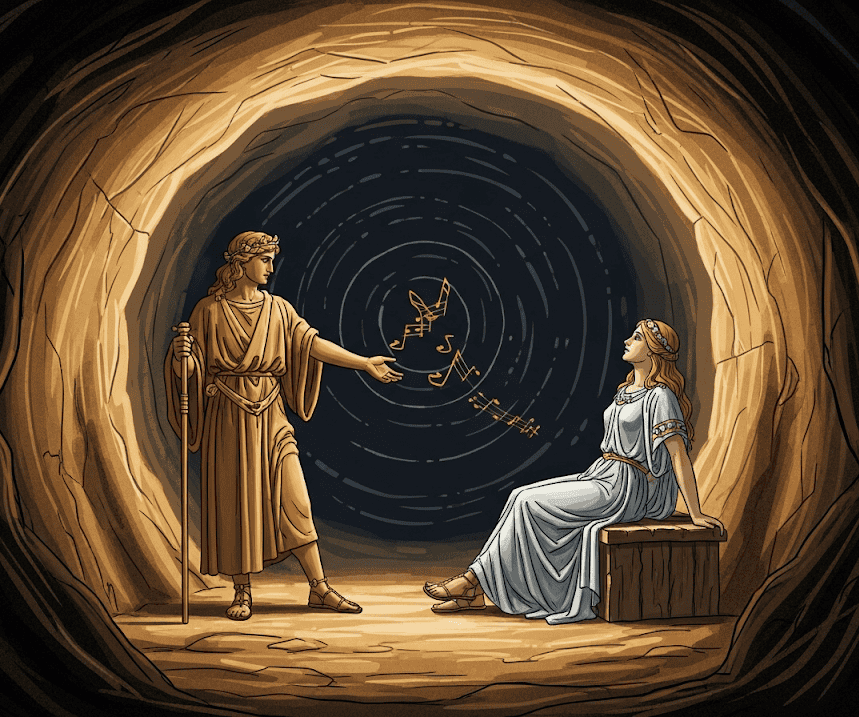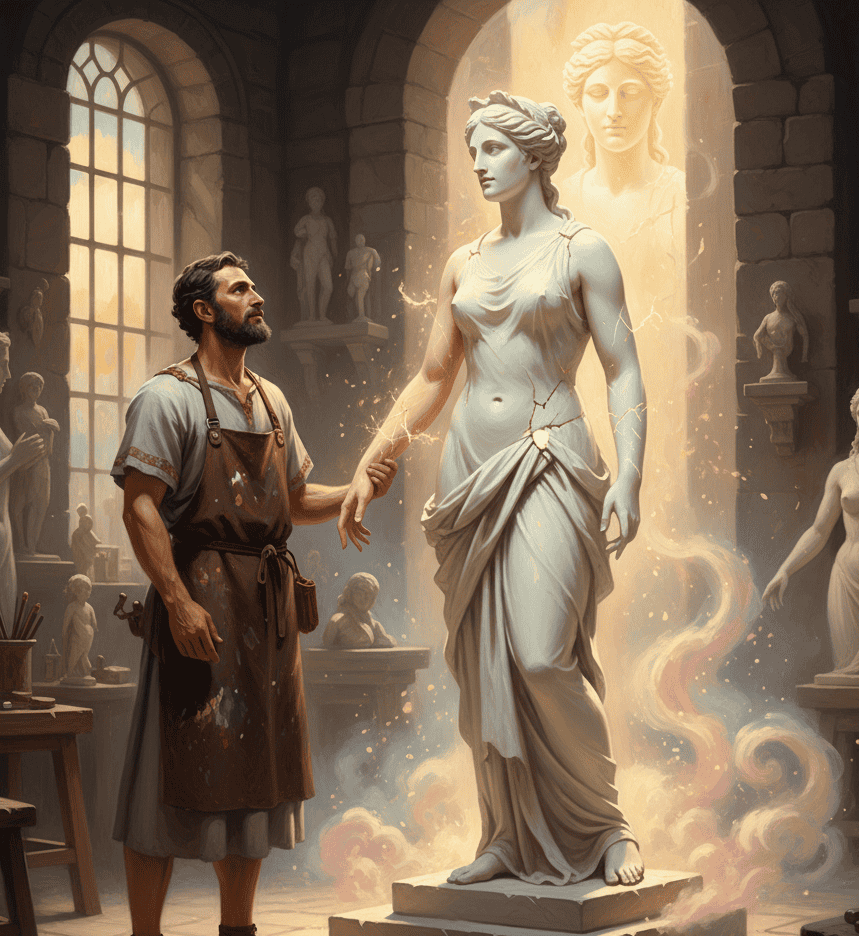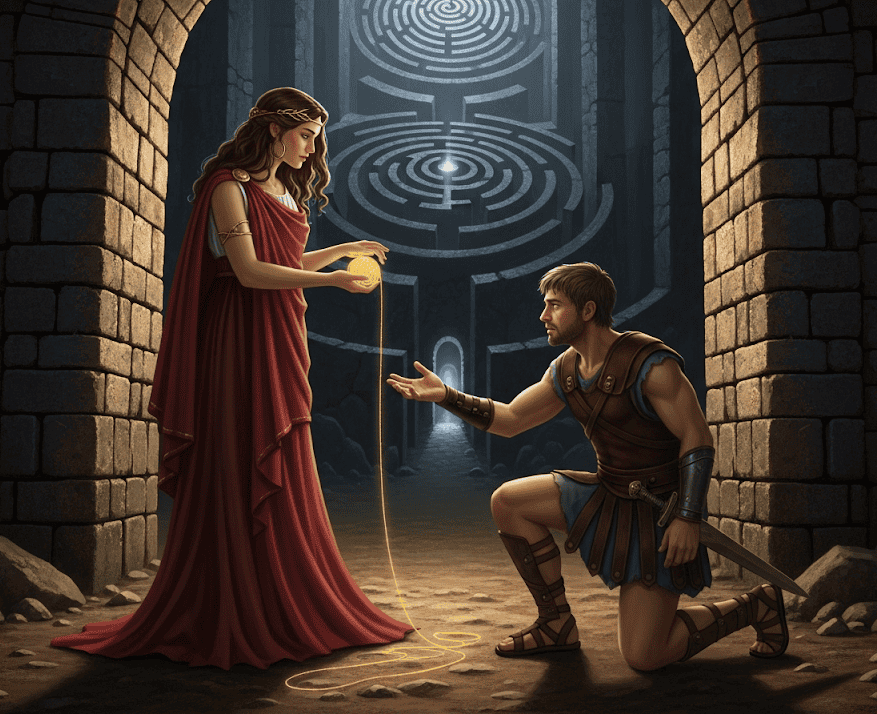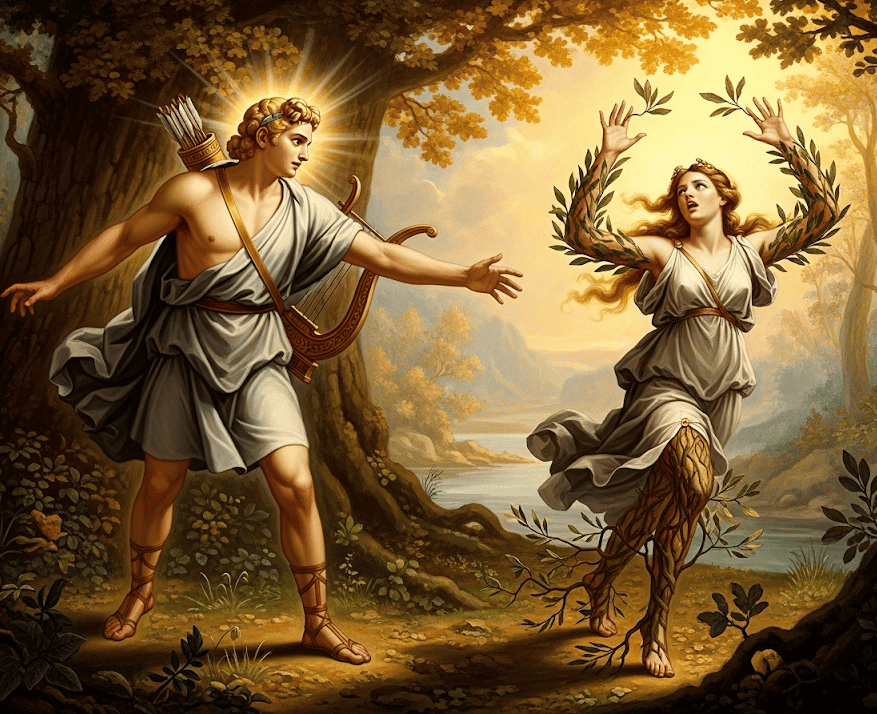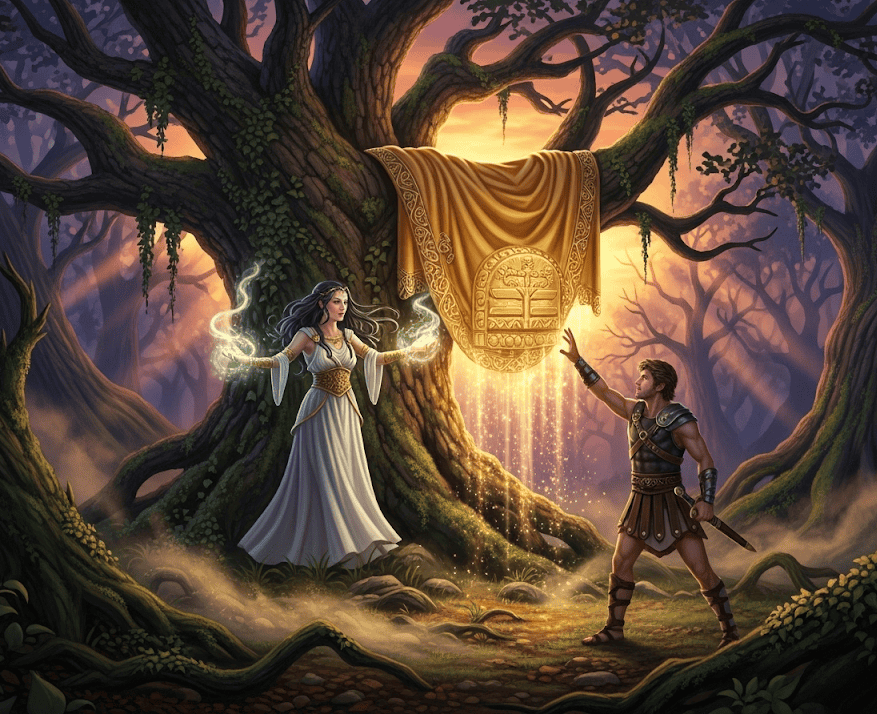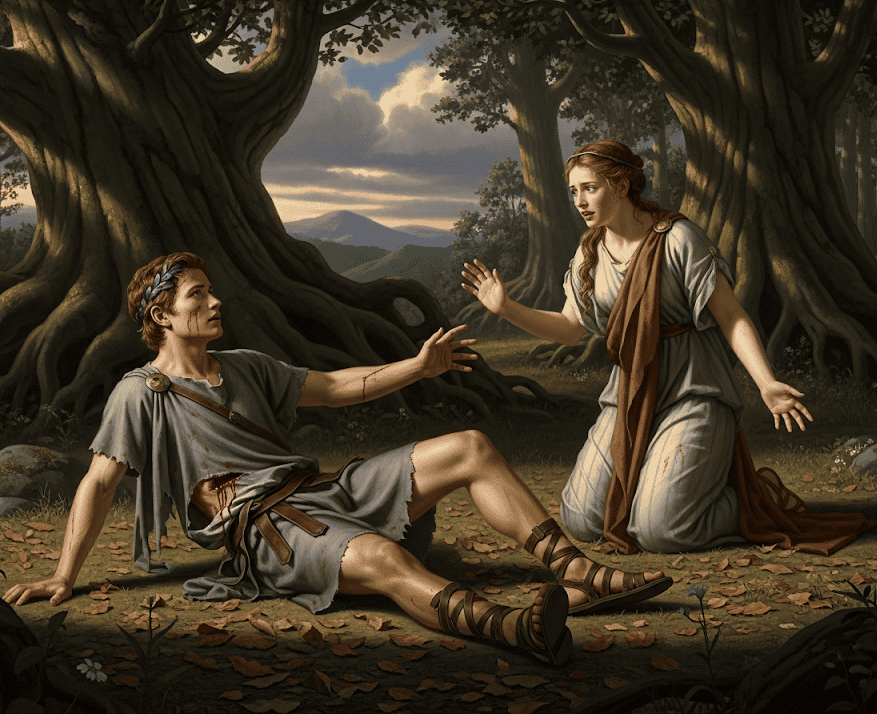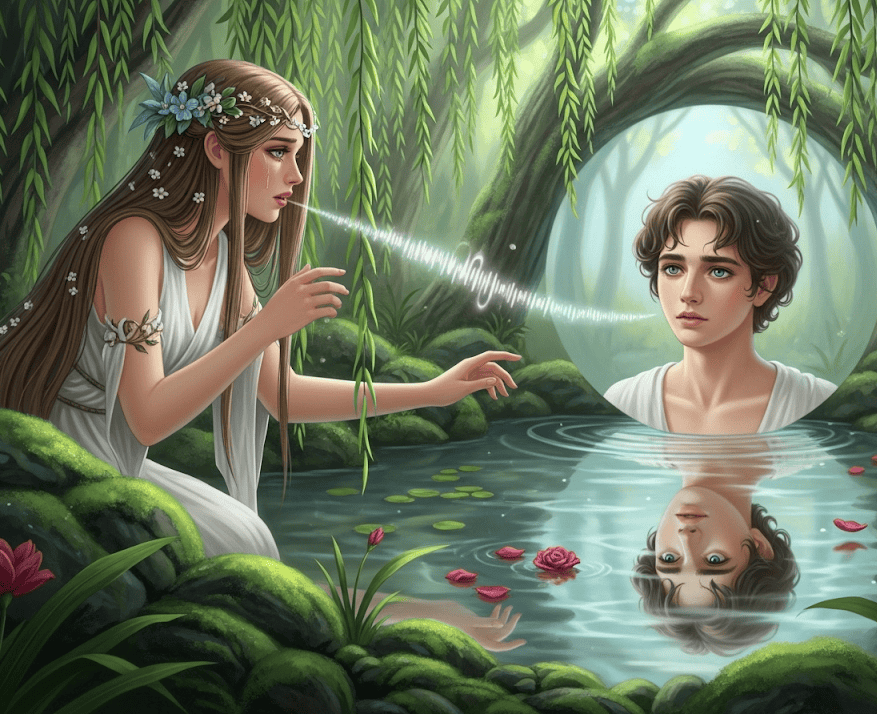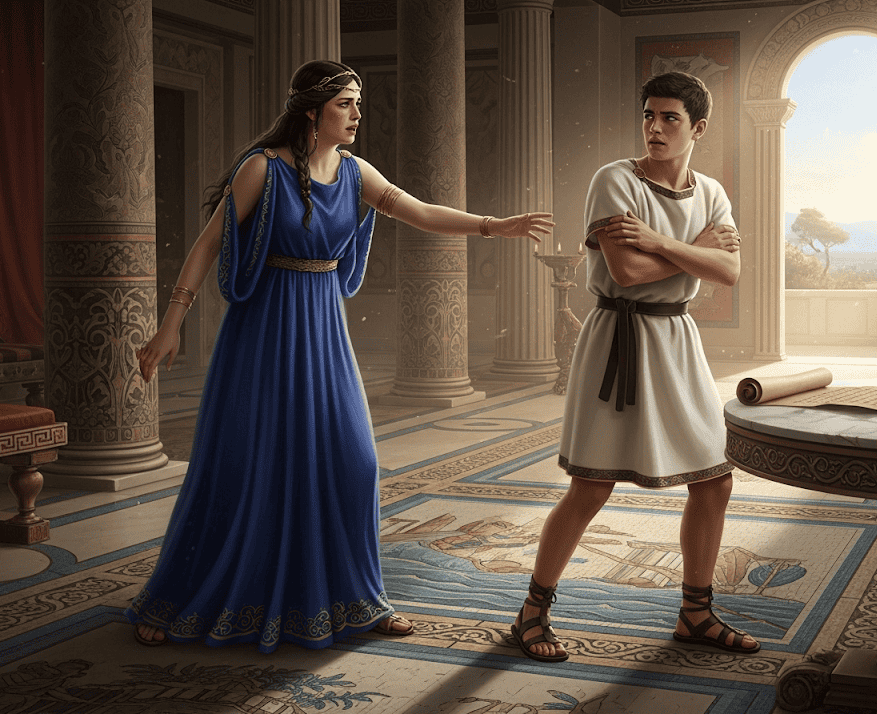Heartbreak is nothing new. Long before modern songs about lost love and romantic comedies with bittersweet endings, people told stories about gods, mortals, and heroes who felt the sting of loss and longing.
Greek mythology is full of tales that remind us how fragile love can be, and how easily it can slip through our fingers.
Some of these myths are tragic, others are cautionary, but all of them reveal that heartbreak has always been part of the human story.
1. Orpheus and Eurydice
One of the most famous stories of love and loss is that of Orpheus and Eurydice. Orpheus was the greatest musician in Greek mythology, his songs were so beautiful that even stones and trees leaned in to listen.
He fell in love with Eurydice, but their happiness was short-lived when she died from a snake bite. Unable to accept her death, Orpheus journeyed into the underworld to bring her back.
His music softened even Hades, who allowed Eurydice to follow him back to the surface on one condition: he could not look at her until they were both safely in the upper world.
In a moment of weakness and longing, he turned too soon. Eurydice vanished forever, leaving Orpheus broken.
This myth captures how heartbreak can come not only from fate but also from our own impatience and doubt.
2. Pygmalion and Galatea
The story of Pygmalion and Galatea might sound romantic at first, but it also reveals heartbreak in its own way.
Pygmalion was a sculptor who fell in love with his own creation, a statue so beautiful that no real woman seemed to compare.
He longed for the statue to come alive, and the goddess Aphrodite granted his wish, transforming Galatea into a living woman.
While this is often told as a happy ending, there’s a hidden sadness in the story. Pygmalion’s love for Galatea was based on perfection, an ideal that real relationships rarely live up to.
The myth shows us the heartbreak of chasing something flawless, reminding us that love built on fantasy can lead to disappointment once reality steps in.
3. Ariadne and Theseus
Ariadne’s story is one of betrayal and abandonment. She was the daughter of King Minos of Crete, and she helped the hero Theseus escape the deadly Labyrinth by giving him a ball of thread to trace his way back out.
In return, he promised to take her away and marry her. Ariadne risked everything for Theseus, leaving her family and homeland behind.
Yet once they reached the island of Naxos, he deserted her while she slept. Waking up alone on the shore, Ariadne experienced heartbreak in its rawest form: betrayal after trust.
Though she was later found and married by the god Dionysus, her myth lingers as a reminder of how love can turn to sorrow when promises are broken.
4. Apollo and Daphne
The tale of Apollo and Daphne is not one of happy endings but of unrequited love and transformation. Apollo, struck by one of Eros’s golden arrows, fell hopelessly in love with the river nymph Daphne.
But Eros had also shot Daphne with a leaden arrow, ensuring she would never return Apollo’s affection.
Apollo pursued her relentlessly, and in desperation, she prayed to her father, a river god, to save her.
He transformed her into a laurel tree just as Apollo reached her. Apollo was heartbroken, left only with the tree as a symbol of his unfulfilled love.
He vowed to honor her forever by wearing laurel wreaths, but the story shows the pain of one-sided desire and the heartbreak of never being able to hold what you long for.
5. Hero and Leander
The myth of Hero and Leander is a tragic tale of devotion cut short. Hero was a priestess of Aphrodite who lived in a tower, while Leander lived across the Hellespont, the narrow strait of water separating them.
Every night, Leander swam across the strait to be with her, guided by the light of a lamp she set in her tower window.
One stormy night, the lamp was blown out, and Leander lost his way in the dark waters and drowned.
When Hero discovered his body washed ashore, she threw herself from the tower to join him in death.
Their story became a symbol of love’s determination but also of the heartbreak that comes when fate is cruel.
6. Medea and Jason
Few myths capture the bitterness of heartbreak as vividly as the tale of Medea and Jason. Medea was a powerful sorceress who fell in love with Jason and used her magic to help him claim the Golden Fleece.
She sacrificed her family and homeland for him, standing by his side through countless trials. But when Jason later abandoned her to marry another woman for political gain, Medea’s heartbreak turned to fury.
In her rage, she destroyed Jason’s new marriage and committed acts that left her name forever infamous.
The story reveals how betrayal can twist love into devastation, and how heartbreak can push people to extremes they never imagined.
7. Paris and Oenone
Before Helen of Troy entered his life, Paris was loved by the nymph Oenone. She bore him a child and stood by him.
But when he won Helen as his prize for judging the beauty contest of the goddesses, Paris abandoned Oenone without hesitation.
Later, during the Trojan War, Paris was mortally wounded. Remembering Oenone’s healing powers, he begged her to save him.
Still broken from his betrayal, she refused. By the time she regretted her decision, it was too late, and Paris had died.
Consumed by grief, Oenone ended her own life. Their story is a painful reminder of how betrayal leaves scars that no reconciliation can heal, and how heartbreak often lingers long after love has ended.
8. Echo and Narcissus
Echo’s heartbreak is one of the saddest in mythology. A talkative nymph, cursed only to repeat the words of others, she fell in love with the beautiful youth Narcissus.
But Narcissus cared for no one but himself. When she tried to approach him, he cruelly rejected her, leaving her humiliated and heartbroken.
She wasted away until only her voice remained, echoing in caves and valleys. Meanwhile, Narcissus eventually fell in love with his own reflection and wasted away, too.
Echo’s heartbreak reminds us of the pain of being unseen and unheard, of giving affection that is never returned.
9. Phaedra and Hippolytus
The myth of Phaedra and Hippolytus shows the destructive side of forbidden desire. Phaedra, the wife of King Theseus, fell in love with her stepson Hippolytus.
When he rejected her advances, she was consumed by shame and despair. In her heartbreak, she accused Hippolytus of trying to seduce her, and Theseus, believing her, cursed his son.
The curse led to Hippolytus’s death in a chariot accident. Overcome with guilt, Phaedra ended her own life.
This tragic cycle of rejection, lies, and despair highlights how heartbreak can spiral into devastation, pulling down everyone involved.

Siempre sentí una fuerte conexión con lo Divino desde mi nacimiento. Como autora y mentora, mi misión es ayudar a los demás a encontrar el amor, la felicidad y la fuerza interior en los momentos más oscuros.

